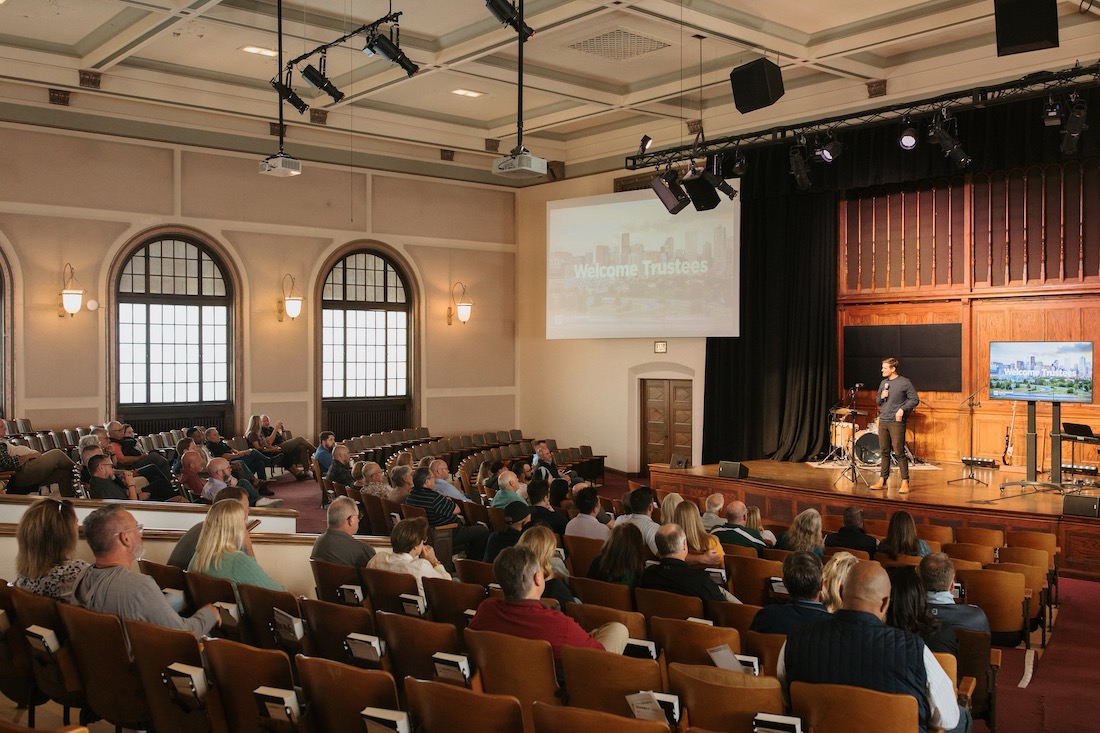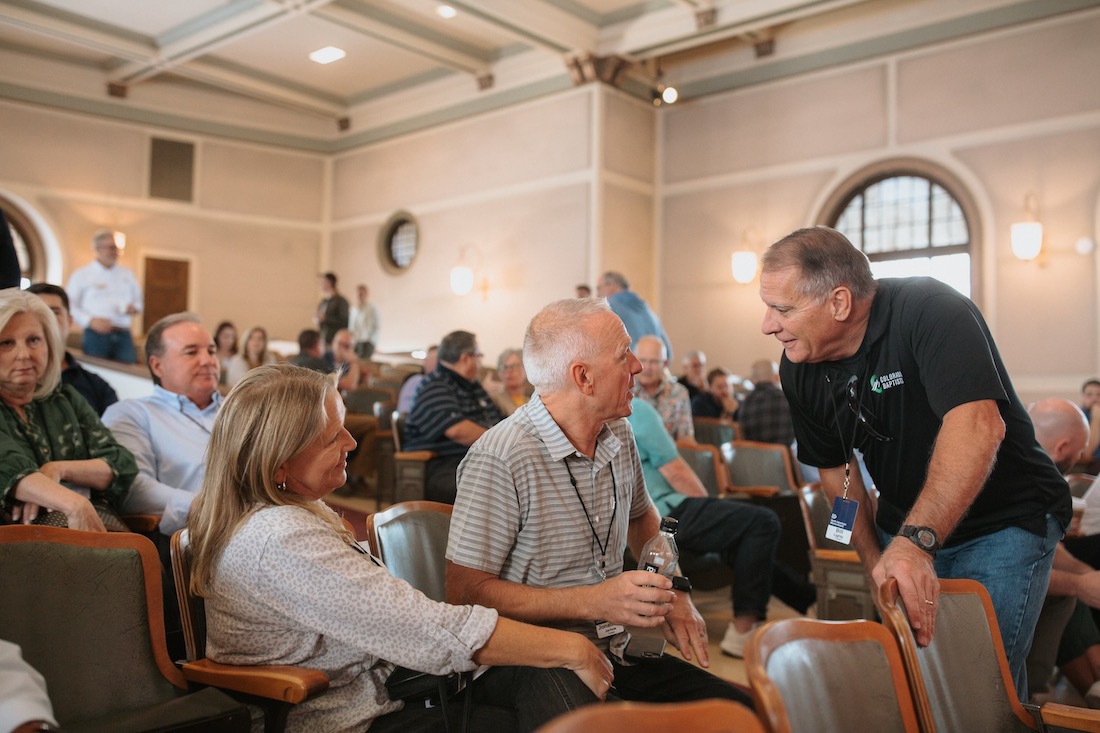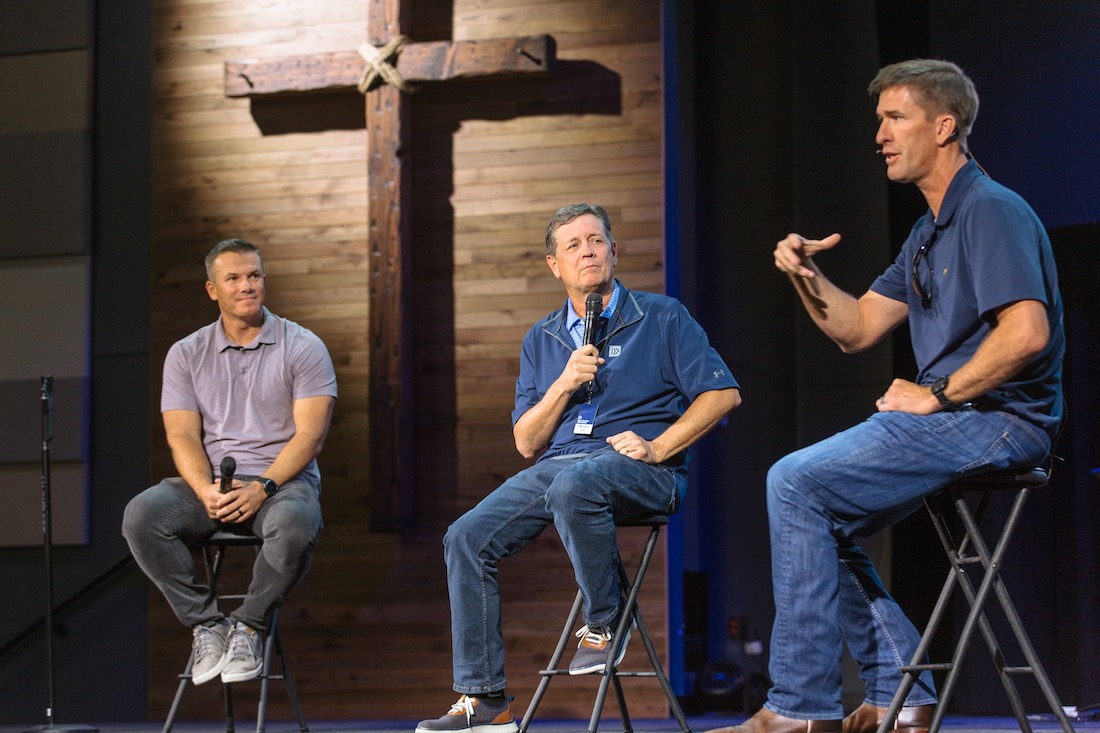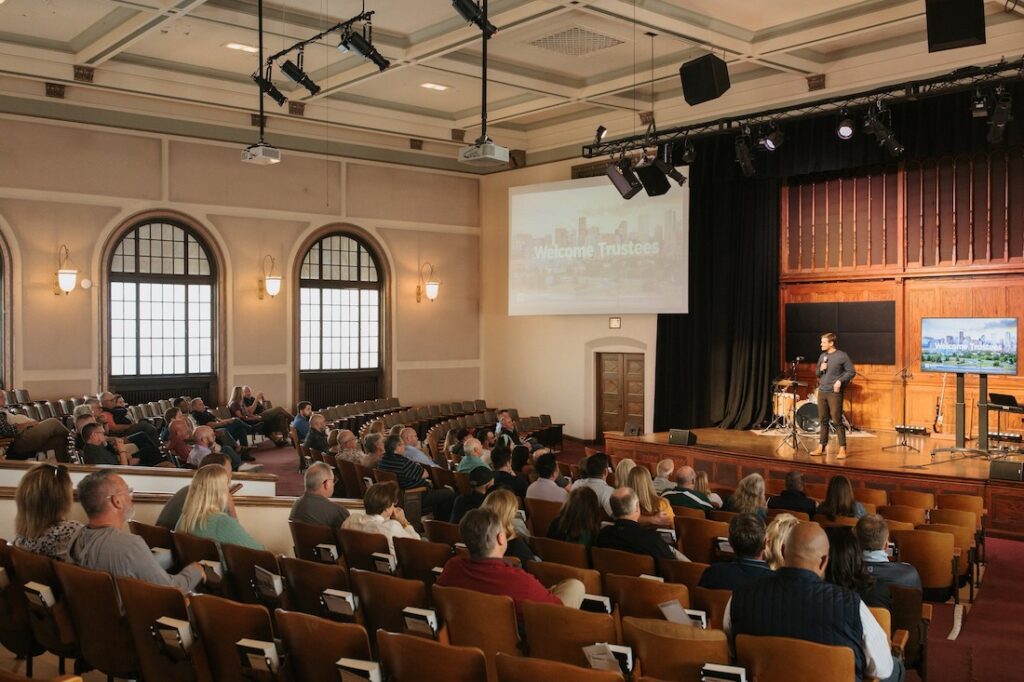DENVER – In Denver, many church buildings have become condos. There is only one evangelical congregation for every 32,000 residents, but there’s a marijuana dispensary for every 2,096 residents.
So when a church is planted in Denver, it’s a God story.

It’s a story Denver’s Send City missionary, Dave Howeth, has seen written over and over again. When he first arrived in the Mile-High city 12 years ago, he recalls the church plant survival rate for all evangelical churches was hovering around 10%.
“It was a church planting graveyard,” he said. But if there’s one thing Christians can be sure of, it’s that a graveyard never stopped Jesus Christ.
Since 2015, Howeth has seen 111 Southern Baptist churches planted in Denver, and 101 of those churches have survived—a 90% survival rate from the place where church plants once went to die. Now, more than a quarter of the Colorado Baptist Convention is made up of churches planted since 2015.
These are the stories that the current NAMB Board of Trustees heard as they toured two church plant buildings that were made possible because of the generous gifts of Southern Baptists. Trustees were in town for two days of meetings, Oct. 2-3. (See related story).
The Heights Church in Denver met in a school for years before a loan from NAMB allowed them to purchase a church building in a neighborhood in desperate need of gospel hope.

“I just want to say, ‘Thank you,’” executive pastor Jonathan Hunt said to the trustees. “Our church could have never dreamed what God had in store for us had it not been for the vision and equipping of NAMB’s Send Network.
“I am a product of your strategy from a decade ago,” Hunt continued. “My wife was a GenSend student missionary the first summer GenSend was in existence in Portland. She came to the Send Conference in Dallas, and that’s where we met. She helped me catch a vision for church planting.”
Lead pastor Corbin Hobbs told the trustees, “It’s working. What you as trustees are investing your time and energy and talents into is working. Our church is a living, breathing example of that.” He shared that the church runs 600-700 in morning worship attendance.
The Heights Church building became a blessing to compassion ministry as well as they were the first location of Denver’s Send Relief ministry center.
“In the heart of COVID, when everyone was gathering for themselves and fending for themselves, with Send Relief, we reached out to others. They mobilized our church to do that,” shared Hunt.
Trustees also visited Storyline Church in the Denver suburb of Arvada. Originally planted by current Lifeway president, Ben Mandrell, the church is now led by Pastor JT English. English was joined onstage by NAMB resident, Kevin Ezell, Send Network president, Vance Pitman and NAMB Executive Director of Strategic Initiatives, Ray Clark.

In a panel discussion, they talked with trustees about the practical ways investing in housing for missionaries and church buildings for church plants is making a long-term, strategic difference in the survival and growth of new churches.
In secular and expensive metropolises like Denver, it might take a church plant 10 years or more to obtain a permanent location, they said, and many new church planters cannot initially afford the high cost of living.
“Banks won’t even talk to you if you don’t have a financial history,” said Pitman, who experienced the same challenge when he planted a church in Las Vegas. “We’re not just giving buildings away; the churches pay that money back, and we can turn around and invest that money in another church plant. What we’re able to do is pour gasoline where there’s spiritual fire already happening.”
Clark told the story of how Storyline was unable to find a permanent place to meet and unable to afford to build a facility the size they would need for their church. Through connections with Southern Baptists in Arkansas, Clark was able to negotiate the sale of an unused former Walmart building to the church, which now hosts hundreds of believers every Sunday for worship. Storyline has baptized 88 new believers so far this year.
“The support that NAMB has given Storyline isn’t just finances. It’s personal support and encouragement,” noted English from a stage constructed over what was once the meat section of that Walmart building. “We are so thankful for the NAMB and Send Network. This church does not exist without your faithful investment over the years.”
Published October 4, 2023
